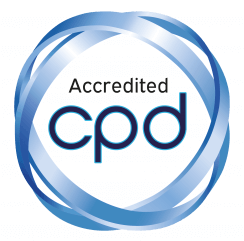Informed Early Years
CPD Standards Office Provider Number: 50586
Send an enquiry to this training provider


Category: Coaching Programmes & Solutions, Early Years, Education & Training Centres, Mental Health & Wellbeing
Description:
Informed Early Years: CPD-Accredited Courses for Early Childhood Professionals and Parents
Offering CPD-accredited e-learning courses that provide essential training on approaches to young children's well-being such as trauma-informed practice, understanding Adverse Childhood Experiences (ACEs), self-regulation, mindfulness, emotional literacy, and more. Our courses are designed for early years professionals, educators, and parents seeking to create more compassionate, relational, and mindful environments for young children.
Our CPD-accredited courses equip learners with practical tools to promote children’s well-being and improve their ability to understand and respond to challenging behaviours. We answer the key questions early childhood professionals and parents often ask, such as: "How can I better support children affected by trauma?" or "What strategies can I use to foster self-regulation and emotional intelligence?"
With years of experience, Informed Early Years combines the latest research with hands-on, actionable strategies to ensure every course delivers value. Whether you're an early years professional wanting to deepen your knowledge or a parent looking to build stronger relationships with your children, our training will provide the tools you need to thrive.
- Trauma-Informed Practice: Support early childhood well-being through awareness of trauma, compassion, and understanding of the emotional impact on young children.
- Mindfulness and Emotional Regulation: Tools and practices for helping children regulate emotions, manage stress, and build resilience through mindfulness and relational behaviour.
- Relational and Behavioural Approaches: Guidance on interpreting behaviour as communication and using relationship-focused strategies.
- Awe-Inspiring Environments: Creating environments that foster curiosity, wonder, and emotional growth.
Join a growing community of professionals and parents dedicated to children’s well-being. Browse our courses and start your journey toward becoming more relational, compassionate, and knowledgeable in your approach to early childhood care.
Accredited Activities:
Who Should Attend:
Our CPD-accredited courses are designed for a wide range of individuals working in early childhood education, care, and parenting support: Early Years Professionals: Teachers, nursery staff, and childminders seeking to deepen their understanding of trauma-informed practice and Adverse Childhood Experiences (ACEs) to better support children’s emotional and behavioural needs. Education Leaders: School leaders and administrators looking to implement relational, compassionate approaches within their settings, ensuring improved outcomes for both staff and children. Parents and Caregivers: Those wanting to gain practical tools and strategies for responding to challenging behaviours, promoting emotional literacy, and fostering secure attachments at home. Social Workers and Family Support Workers: Professionals who work closely with young children and families affected by trauma, aiming to boost their knowledge of self-regulation and mindfulness practices. Mental Health and Well-being Practitioners: Specialists who wish to expand their toolkit with trauma-informed approaches to working with young children. Why Attend? By attending these courses, participants will gain valuable skills to create nurturing environments, reduce challenging behaviours, and improve relationships with children through relational practice. You’ll leave with practical, actionable strategies and increased confidence in promoting well-being and resilience.
